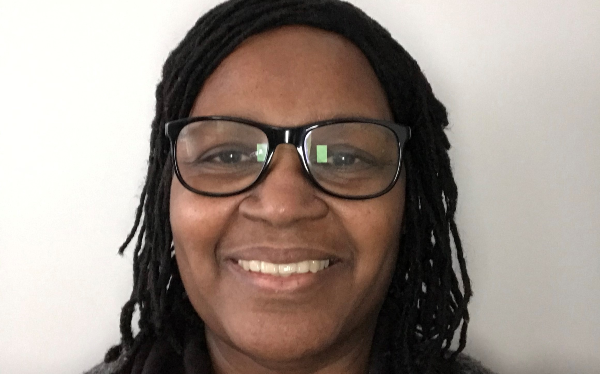
How do you rate councils’ efforts to recruit people from diverse backgrounds into social work leadership roles?
- Very poorly (46%, 125 Votes)
- Quite poorly (28%, 77 Votes)
- Very highly (14%, 39 Votes)
- Quite highly (12%, 32 Votes)
Total Voters: 273
Beverley Tarka this week became the first black president of the Association of Directors of Adult Social Services (ADASS) since its establishment in 2007.
Taking the helm at ADASS at its annual spring seminar this week, the importance of her appointment – and her position as a role model for others – was not lost on Tarka.
Three in ten of the social workers whom Tarka and her colleagues lead are black, Asian or from an ethnic minority, but this diversity is not reflected in adults’ services’ leadership cadre.
Being a role model
“I think it’s very important,” she tells Community Care. “I want to have a focus on inclusion and diversity. That visible leadership role acts as a role model for people in the field and even people outside the field of social care. If you see black women in leadership positions people understand they can do that.”
Related articles
Tarka’s appointment also stands out for another reason. Director at Haringey council for the past eight years, she has been with the London borough, where she also lives, for 30 years, the length of her social care career.
This is rare among adults’ or children’s services leaders, who often move between authorities as they climb the leadership ladder. So why has Tarka stayed put?
“If I was being flippant, I would say I hate commuting,” she jokes before referring to the “vibrancy and diversity of the community”, 43% of which is non-white, according to the 2021 census.
Beyond that, she feels a debt of gratitude to an authority she says has invested significantly in her career since she joined as a residential social worker three decades ago.
“I started at a time when there was quite significant investment from local authorities,” she says. “I was fortunate to qualify as a social worker and then did a masters in strategic leadership. Before austerity, there was much more financing available for learning and development.”
Family inspiration
Much of her career was spent working with adults with learning disabilities, a reflection of the fact that her career in social care was inspired by her own experience caring for her brother, who has profound and multiple learning disabilities.
She had been working in Nigeria writing feasibility studies about agricultural finance but was called back to the UK after her mother – her brother’s main carer – fell ill.
Tarka referred to the formative nature of this experience in her presidential speech at the spring seminar.
“These personal experiences were my introduction to seeing the world through the lens of my mother, an “informal carer” and this has undoubtedly influenced my choice to pursue a career in social care,” she said.
It has also influenced one of her top priorities for her presidential year, improving support for carers.
“As a society we have asked a huge amount of carers, and during the pandemic we asked more again,” she said. “They rose to the challenge – as they always do – but they are now utterly exhausted. We owe them not just our thanks, not just our respect, but real, meaningful support that will help them carry on and will give caring the status it deserves.”
Roadmap for change
ADASS has long advocated improving funding and support for carers, and for the social care system more generally. But it has now been provided by a clear blueprint for how to do this, in an independent report – known as the roadmap – published for the association this week.
While ADASS is not signed up to every dot and comma of the report – produced by policy consultants Anna Dixon and Kate Jopling – it supports the broad thrust of its agenda of a shift to a more personalised, accessible and fair adult social care system.
This will be the basis of the case it will be making to government for how it invests in, and reforms, the system over the coming years.
It is an optimistic vision – based significantly on that articulated by Social Care Future: “We all want to live in a place we call home, with the people and things we love, in communities where we look after each other, doing things that matter.”
Ongoing challenges
But it comes with the sector in as challenging a position as it has been in many years, the legacy of austerity, Covid and the cost of living crisis, set against the backdrop of an ageing population and the increased lifespan of many disabled people.
Low pay and challenging working conditions have made it increasingly difficult for providers to recruit and retain staff. Councils – with rising vacancies for social workers and occupational therapists – have struggled to manage pressures at their front door, leaving about 500,000 people waiting for assessments, reviews or care. And, as Tarka articulated, carers are under severe pressures, leaving many on the brink of being unable to do their job.
While the government has hailed record funding for adult social care from 2023-25, it has, at the same time, cut – at least for the time being – that available for reforming services and investing in the sector.
At the same time, much of the resource it has provided is directed towards clearing hospital beds, rather than the vision of social care as a vehicle for better lives.
Glass half-full
Tarka appears to be taking a glass half-full approach to this issue.
On taking up the presidency, she says: “It’s daunting – but exciting at the same time. The roadmap gives us a tool, a resource to support a narrative with government. We want a shift from the dominant narrative around hospital discharge. It’s helpful to have a resource to frame that narrative and have a platform to take forward the work we’ve done.”
However, she says that, with the many pressures and priorities facing the government, ADASS and the social care sector more widely needs to make their case to the public if it is to succeed.
While a recent ADASS survey found members did not see this as important, Tarka says this is the best way to influence government, particularly with a general election due in the next 18 months.
Making social care’s case to the public
“Social care touches all of our lives, whether you’re a person with care needs or you have a relative with care needs,” she says.
“I’m not sure we’re doing enough to articulate how important it is in the public perspective. The government will listen to the public. And stories are rich and tell a thousand words.”
ADASS will continue to make the case for more funding and she is also focused on improving the wellbeing of the workforce that it is the beating heart of the sector, including social workers.
This was one of the areas that the government has cut planned support for in its scaling back of its reform plans.
“We’ve been through a tough time through Covid and have significant workforce challenges in terms of recruitment and retention,” she adds. “I think there’s something for me in having a really well-developed social workforce strategies and supporting the health and wellbeing of our workforce.”




 A trauma-informed approach to social work: practice tips
A trauma-informed approach to social work: practice tips  Problem gambling: how to recognise the warning signs
Problem gambling: how to recognise the warning signs 




 Find out how to develop your emotional resilience with our free downloadable guide
Find out how to develop your emotional resilience with our free downloadable guide  Develop your social work career with Community Care’s Careers and Training Guide
Develop your social work career with Community Care’s Careers and Training Guide  ‘Dear Sajid Javid: please end the inappropriate detention of autistic people and those with learning disabilities’
‘Dear Sajid Javid: please end the inappropriate detention of autistic people and those with learning disabilities’ Ofsted calls for power to scrutinise children’s home groups
Ofsted calls for power to scrutinise children’s home groups Seven in eight commissioners paying below ‘minimum rate for home care’
Seven in eight commissioners paying below ‘minimum rate for home care’
 Facebook
Facebook X
X LinkedIn
LinkedIn Instagram
Instagram
This is good. I support diversity in leadership and black women in particular need representation in high influence roles. Having said this, representation alone will not change the lives of the diverse communities we serve. Hopefully Tarka will be empowered to use her new position to influence policy in ways that will help the most disregarded and discriminated sections of our community.
I am really pleased Beverly that you have smashed the glass ceiling but up and down the country racism is rife in social care and that is my experience of the local authority I worked in.
Black staff are disproportionately disciplined, even though they are highly qualified and experienced are not promoted and there still exists cliques and favouritism amongst non black senior managers.
In the authority I worked in, the senior leadership team does not reflect the population it serves.
Congratulations to Tarka on her appointment and looking forward to seeing the impact made on her commitments.
CONGRATS Beverley, you were personable when I came to panel and always made me consider you approachable and see you as a person who although in high senior management , still able to make one feel supported and listened to….enjoy your new role and again congratulations…
This was an inspiration read and as a Black women it gives me hope that we can now be recognised as women of talent, wisdom and strength
Well done Beverly you are a beautiful shining example of Black Excellence
Congratulations Tarka. You made me believe I can be a social worker during them years at Ermine Road.
Congratulations to Tarka on her new role.
However, I know how taboo it is to discuss male discrimination. But gender imbalance, regardless of skin complexion, is a bigger challenge in social care I feel.
What’s the gender imbalance that negatively impacts male staff in a predominantly female workforce?
Social work is 85% female so it’s a profession which has a very, very long way to go indeed to achieve anything remotely approaching a true representation of the people it serves.
Given that there are more female users of our services than men, the 85% are more representative than assumed? Social work has a long way to go to represent the communities it purports to serve but the gender imbalance in the workforce is not the key issue. That the construct is one of assumed binary gender differences says more than it perhaps intends to.
Such contradictory dogma perhaps goes at least some way to explaining why over the past few decades, an ever decreasing percentage of social workers are men. Given that protracted demographic trajectory,it is perhaps only reasonable that some may regard the phenomenon as “not a key issue”.
It’s not.
There’s a difference between decreased representation and active discrimination. We know that social workers who are not white face racism and other discrimination from colleagues, employers, other professionals and service users. As a male social worker I don’t experience any of this. In fact I don’t seem to face any gender related barriers at all in the workplace. That you commenting on this article to divert attention away from its important subject and onto ‘male discrimination’ says a lot about you, your priorities and values.
I am not aware of men being subjected to discrimination in social work and that is arguably testimony to the generous and favourable working environment provided by the predominantly female workforce. However despite that seemingly attractive working environment, men are still simply refusing to consider social work as a career at an alarming rate and for a profession as self reflective as social work to continue to ignore this issue raises questions about its ability to successfully address other areas of diversity.
It’s great being a champion of getting black people, especially black women, into leadership.
From what I observed in Haringey Council, lots of black (female) social workers were given opportunities and promotions, which is commendable.
Unfortunately, these opportunities did not extend as much to other ethnic minorities who remain underrepresented and marginalised.